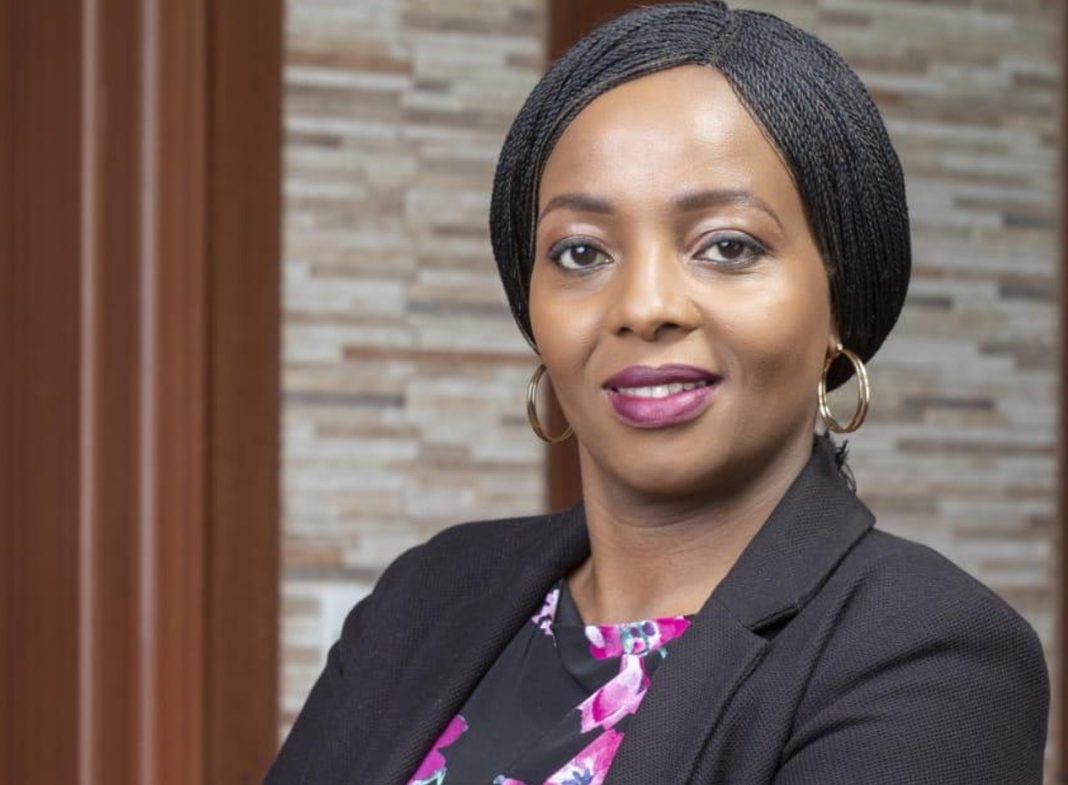Women entrepreneurs hold the potential to transform Africa’s economic future. Across the continent, women-owned businesses are creating jobs, lifting families out of poverty and reshaping communities, thanks to their resilience, creativity, and belief to succeed against all odds.
Justina Opit, the CEO of Omega Foods in Zambia, is just one example.
“I created Omega Foods because I saw an opportunity. It wasn’t only my son that needed healthy grain – there were so many women out there who also wanted to feed their children. I started out selling in markets. My dream is to run a multi-million-dollar business,” she reflects with pride.
Today, more than one in four African women starts or manages a business. Women-owned businesses are vital drivers of economic development and job creation – and because women typically reinvest up to 90% of their income in the education, health and nutrition of their family and community, they can transform societies.
The problem, as Justina discovered, is that women don’t have the same access to finance as men.
“When I wanted to grow, I went to the bank and asked for a loan, and they wouldn’t give me one, because I didn’t have any accounts or financial history,” she recalls.
In many communities, women entrepreneurs remain excluded from formal financial services. Despite being enterprising and hardworking, they struggle to secure financial backing. Unable to own property, many lack the fixed collateral banks require to provide loans.
Multiple barriers – including the high cost of financial services and a lack of financial education – are holding women from growing successful, sustainable businesses.
A new partnership will boost women entrepreneurs’ financial inclusion
The African Development Bank (AfDB), which provides finance to governments and companies, and the Alliance for Financial Inclusion (AFI), a global network of central banks and financial regulators, are working together to close the finance gap for Africa’s female entrepreneurs.
In 20 African countries, AFI and the AfDB’s Affirmative Finance Action for Women in Africa program (AFAWA) are studying the barriers faced by women entrepreneurs when seeking access to finance.
They are working with policymakers, financial regulators, and key national stakeholders to design and implement policies which make it easier for women to access financial services.
Over the next two years, AFI and AfDB will publish a series of case-studies showcasing the impact of smart financial inclusion policies. There’s already compelling evidence to share.
In Zimbabwe, 83 percent of women are now financially included – a significant increase from 68 percent in 2014. The country’s first National Financial Inclusion Strategy (NFIS) which ran from 2016 to 2020, focused on expanding access to financial services for marginalized populations, including women and MSMEs. The Reserve Bank of Zimbabwe played a key role by:
- Ensuring that all bank branches had women’s desks and SME desks
- Creating banking institutions that focus on the needs of women
- Introducing legislation that allows banks to accept movable collateral from marginalized groups, in order to access loans.
- Creating a credit guarantee scheme that provides risk protection to lenders, opening up access to loans for whole new populations
- Over 4,000 women have received financial literacy training
Today, Zimbabwe’s women entrepreneurs can access tailored banking products, and the tools and knowledge needed to grow successful businesses.
Egypt has also made strong progress in advancing women’s economic empowerment through national strategies, financial sector innovation, and inclusive regulatory reforms.
As a result of the ambitious targets set by the National Strategy for the Empowerment of Egyptian Women 2030, the percentage of women with access to financial services grew exponentially from 9 percent in 2015 to 69 percent in 2024.
The Central Bank of Egypt also implemented a range of targeted regulatory reforms, including simplified Know-Your-Customer requirements, and mandating banks to allocate a portion of their loan portfolios to MSMEs, placing a strong emphasis on women-owned businesses.
“Women’s financial inclusion is key to achieving a healthy, robust and resilient society,” said May Abulnaga, First Sub-Governor, Central Bank of Egypt.
The story is similar in Zambia, where women’s financial inclusion rates surged from 33 percent in 2015 to 70 percent, thanks to targeted efforts by the Bank of Zambia.
Recognising that women entrepreneurs are a cornerstone of Zambia’s economy, making up 48% of the labor force, the Bank successfully implemented strategic initiatives including:
- Delivering financial literacy training to women farmers
- Working with Zambia Federation of Associations of Women in Business (ZFAWIB) to train thousands of women on how to grow successful businesses
- Simplifying bank know-your-customer requirements, allowing community leaders to sign on behalf of eligible women
- Allowing women to obtain loans using moveable collateral such as motor vehicles and livestock
Africa needs millions of new jobs – women’s financial inclusion can provide them
With Africa’s population projected to soar, the continent will need to create 15 million new jobs every year between now and 2050.
By supporting African countries develop policies which make finance more accessible, affordable, and responsive to the realities of women-owned businesses, the Alliance for Financial Inclusion / African Development Bank partnership is helping create conducive conditions for women entrepreneurs to thrive and generate these much-needed job opportunities.
Ultimately, this will lay the foundation for robust, inclusive and sustainable economies across the continent.
The author is head of policy management at the Alliance for Financial Inclusion





